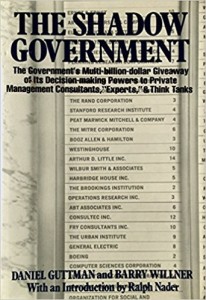These interdisciplinary invaders have come to dominate the faculties of the elite law schools and to influence a great many of the other law schools. The interdisciplinarians are valuable additions to law faculties, but they should not be allowed to displace faculty who bring to the teaching of and research into law a rich background of legal practice in lieu of expertise in a scholarly field or fields outside of law.
—Richard A. Posner, The Federal Judiciary Strengths and Weaknesses, Harvard University Press 2017
INTRODUCTION
Think about this: some of the largest drug companies in the world—the one’s that we rely on for life saving treatments—are convicted criminals.1 Hospital chains and large entities that distribute drugs to the elderly have been charged with defrauding the government and have paid fines, or entered guilty pleas to resolve allegations of conduct that have placed patients at risk. Healthcare fraud is so rampant that each year the government has recovered billions of dollars under the False Claims Act from companies whose television advertising attempts to portray a different image; an image of a benevolent and caring corporate citizen.
Yet, with so many employees inside the company, how do these entities do what they do for so many years before their wrongful conduct is exposed, perhaps by a whistleblower who wakes up one day and questions what others have never thought about questioning? The answer to this question involves an analysis of how people behave when they are part of an institution—or in this case, a large corporation.
A Practitioner’s View Of Institutional Corruption – Reuben Guttman.

